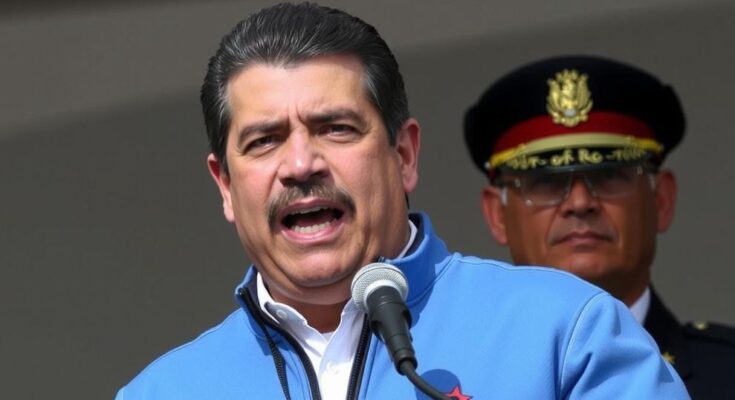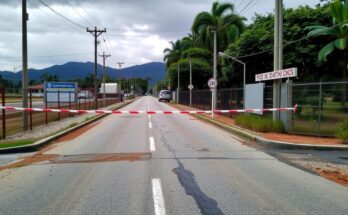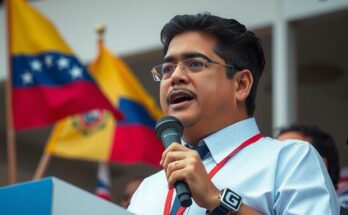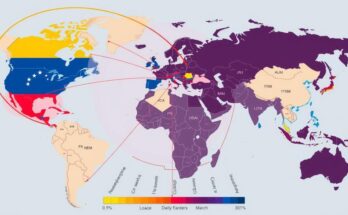Nicolas Maduro’s inauguration for a third term as Venezuela’s president has sparked broad international condemnation. The U.S. increased its reward for information leading to his arrest and imposed new sanctions on officials close to him. The EU and the UK also criticized Maduro’s legitimacy, while Russia offered congratulations. This event highlights Maduro’s controversial leadership and the international response to his administration.
Nicolas Maduro’s inauguration for a third term as president of Venezuela has elicited considerable international outrage, with many governments disputing the legitimacy of the election that purportedly validated his victory. The 62-year-old Maduro has continued to dismiss allegations of fraud, asserting his mandate for another six years in office. Amidst this controversy, he received both criticism and support from various nations, with the United States leading the condemnation.
On the day of the inauguration, Washington escalated its reward for information leading to Maduro’s arrest to $25 million. Secretary of State Antony Blinken asserted that Maduro “clearly lost” the election and described the inauguration as “an illegitimate presidential inauguration.” Furthermore, the U.S. Treasury Department imposed sanctions on eight senior officials involved in Maduro’s governance, citing their roles in repressing democracy in Venezuela.
The European Union also joined in denouncing Maduro, with foreign policy chief Kaja Kallas declaring that he lacks any democratic legitimacy. The EU announced further sanctions against 15 officials from Venezuela’s National Electoral Council and security forces. UK Foreign Secretary David Lammy criticized Maduro’s claim to the presidency as “fraudulent,” stating that the electoral outcome was not reflective of the people’s will.
UN Secretary-General Antonio Guterres condemned the arbitrary detention of numerous individuals, including opposition leaders, journalists, and human rights advocates, and called for their release. Conversely, Russian President Vladimir Putin sent his congratulations to Maduro through parliamentary representatives, underscoring the polarized international response to the Venezuelan leader’s tenure.
Notably, only two heads of state, from Cuba and Nicaragua, attended the inauguration, highlighting Maduro’s isolation. Meanwhile, several traditional left-wing allies declined to participate in the event, signaling a growing distance from Maduro’s controversial regime.
Nicolas Maduro ascended to the presidency of Venezuela amidst a backdrop of political turmoil and economic hardship. His previous terms have been marked by allegations of electoral fraud, authoritarianism, and widespread human rights violations. The country’s political landscape has become deeply divided, with the opposition claiming that subsequent elections were neither free nor fair. As international scrutiny of Maduro’s regime intensifies, many countries have openly criticized his electoral legitimacy and have instituted sanctions against various officials in his administration. His government continues to struggle with crippling economic sanctions, humanitarian crises, and growing civil unrest.
In summary, Nicolas Maduro’s inauguration as president for a third term has been met with significant international condemnation. Key global players like the United States, the European Union, and the United Kingdom have expressed serious concerns regarding the legitimacy of his regime and the process that led to his re-election. With continued sanctions and calls for the release of political prisoners, Maduro’s administration faces mounting pressure both domestically and internationally, while support from allies like Russia remains a rare exception in an increasingly isolationist landscape.
Original Source: www.barrons.com




